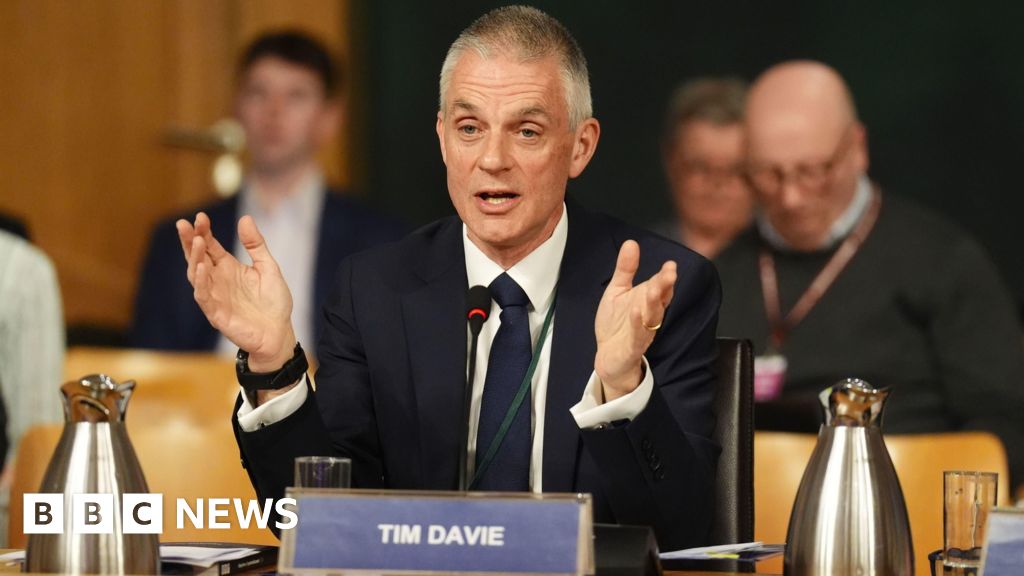Why has Tim Davie resigned and what was the Trump documentary edit?

BBC Director-General Tim Davie and News CEO Deborah Turness Resign Amid Trump Documentary Controversy
BBC Director-General Tim Davie and CEO of BBC News Deborah Turness have resigned following criticism of a Panorama documentary accused of misleadingly editing a speech by former US President Donald Trump. The resignations come amid heightened scrutiny of the BBC's impartiality and at a sensitive time for the corporation, with its Royal Charter up for review in 2027.
Key Figures Step Down
Davie, who assumed the role of Director-General in September 2020, and Turness, who became CEO of BBC News in 2022, both cited the controversy surrounding the "Trump: A Second Chance?" documentary as contributing to their decisions. The documentary, broadcast shortly before the US presidential election, sparked allegations of biased editing.
Turness stated in her resignation statement: "The ongoing controversy around the Panorama on President Trump has reached a stage where it is causing damage to the BBC – an institution that I love... As the CEO of BBC News and Current Affairs, the buck stops with me." She also refuted allegations of institutional bias within BBC News.
Davie, while not explicitly mentioning the documentary in his statement, acknowledged that "the current debate around BBC News has understandably contributed to my decision." He added, "Overall the BBC is delivering well, but there have been some mistakes made and as director general I have to take ultimate responsibility."
Documentary Editing Under Scrutiny
The controversy stems from allegations that the Panorama documentary selectively edited Trump's speech on January 6, 2021, to create the impression that he directly incited the Capitol Hill riot. A leaked internal memo, reportedly from former external advisor Michael Prescott, alleged that the documentary spliced together parts of Trump's speech that were more than 50 minutes apart.
In the original speech, Trump stated: "We're going to walk down to the Capitol, and we're going to cheer on our brave senators and congressmen and women." The documentary allegedly presented a version where Trump said: "We're going to walk down to the Capitol... and I'll be there with you. And we fight. We fight like hell."
The "fight like hell" comment was reportedly taken from a section of the speech where Trump discussed alleged election corruption. Critics argue that this editing distorted the context and misrepresented Trump's intentions.
Implications for the BBC
The resignations have sent shockwaves through the BBC and the broader media landscape. This incident arrives at a particularly precarious juncture for the corporation, as it faces renewed questions about its impartiality and prepares for the upcoming review of its Royal Charter. The Charter, which grants the BBC its license to operate, is reviewed every 10-12 years.
Dr. Sarah Jones, a media ethics expert at the University of Cardiff, commented on the situation: "This is a significant blow to the BBC's reputation. The accusations of biased editing, regardless of their veracity, undermine public trust in the corporation's news reporting. The swift resignations suggest that the BBC leadership recognizes the severity of the situation and the potential damage to its credibility."
Historical Context and Future Challenges
The BBC has long been a pillar of British broadcasting, renowned for its commitment to journalistic integrity and public service. However, it has also faced recurring challenges in maintaining impartiality, particularly in an increasingly polarized political environment. From the Hutton Inquiry in 2003 to more recent controversies surrounding its coverage of Brexit and the Israeli-Palestinian conflict, the BBC has consistently been under pressure to demonstrate its neutrality.
The upcoming review of the Royal Charter presents both a challenge and an opportunity for the BBC. It will need to demonstrate its value to the public, address concerns about impartiality, and adapt to the evolving media landscape. The appointment of a new Director-General will be crucial in shaping the BBC's future direction.
Who Will Be Next?
The BBC Board, led by chair Samir Shah, will oversee the selection process for Davie's replacement. Potential contenders rumored to be in the running include figures such as Charlotte Moore, former BBC Chief Content Officer, and James Harding, former head of BBC News. The new Director-General will be the 18th in the BBC's 103-year history.
The search for a new leader comes at a critical juncture. As media analyst Mark Lawson observes, "The next Director-General will need to be a figure who can not only navigate the complex political landscape but also restore public trust in the BBC's impartiality and ensure its continued relevance in the digital age."
Originally sourced from: BBC Entertainment
